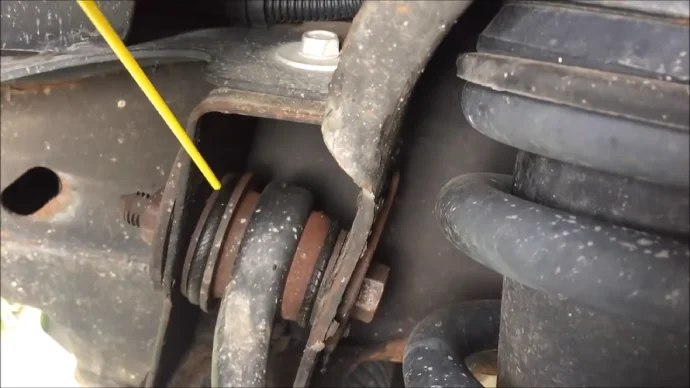Last Updated on March 13, 2023
A squeaky suspension is an irritation while driving and can indicate potential problems with your lift kit. Fortunately, the causes of a noisy lift kit are several, and some solutions exist to address them.
Lack of adequate lubrication, poorly installed components, wear and tear parts, poor quality components, or low power steering fluid levels are all possibilities behind the problem.
To avoid any further noise or damage to your vehicle in the future, regularly inspect and maintain the lift kit. Tightening loose components and replacing worn parts, along with adequate lubrication, can help fix a squeaky lift kit and prevent potential issues from arising again.
Let’s explore the implications of a noisy suspension and discover how to ensure your ride stays quiet.
Why Does Your Lift Kit Squeak: Check All 5 Potential Issues
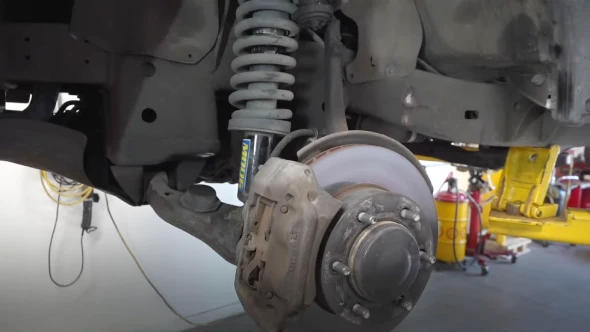
Having a lift kit installed on your vehicle can bring a variety of benefits, from increased off-road performance to improved aesthetics. However, one issue that can arise from having a lift kit installed is squeaking noises coming from the suspension system.
1. Lack of Adequate Lubrication:
Lack of adequate lubrication is one of the most common causes of lift kit squeaking. Suspension components need some form of lubrication to ensure that they move smoothly and with minimal friction between them.
With inadequate lubrication over time, these parts dry out and cause friction between moving parts which can result in squeaking noises when the car is driven.
2. Wear and Tear Components:
Another common cause of your lift kit’s squeaking is worn or damaged suspension components. The components include bolts, ball joints, springs, sway bar bushing, stabilizers, steering components, or bent control arms.
They cannot function properly anymore due to their age or extensive use. When these parts become worn, their movement becomes limited.
It results in uneven tire treads, causing additional movement, which rubs against each other. It results in the squeaking noise you hear when driving over speed bumps or rough terrain.
The rubber bushing found in most suspension systems is designed to provide anchor points for struts and stabilizer arms so they rotate when wheels turn. Over time these bushings can become worn out from age as you drive faster or make sharper turns.
It results in an annoying squeak from the upper strut mount bushing behind the front wheel near the top of the strut. This bushing is typically black and shaped like a doughnut but may also contain a steel sleeve running through its center if it is equipped with a bearing inside the bushing.
When this metal sleeve binds up against the strut or bearing inside the bushing, it causes friction, creating unpleasant noises as you turn the steering wheel.
3. Improper Installation:
Improper installation can lead to unnecessary suspension noises when hitting bumps or driving on uneven ground. This can be due to parts not being aligned properly or not having them tightened the right way during installation.
Both of these affected factors will create extra friction between points, resulting in those dreaded squeaks no driver wants in their vehicle.
4. Poor Quality Components:
Low-quality aftermarket suspension components can be a major source of squeaking. They often come pre-installed with inadequate amounts of grease/lubricant making them more prone than stock parts.
It becomes dry faster, leading to an increase in friction between them, resulting in squeaks when driving over bumpy roads/terrain.
5. Low Level Of Power Steering Fluid:
Insufficient levels of power steering fluid could contribute to developing squealing sounds under normal circumstances, such as turning at low speeds. There needs to be enough pressure to apply within the system.
So there isn’t excessive movement happening between all its components, resulting in reduced efficiency levels overall.
How Do You Stop Your Suspension from Squeaking?
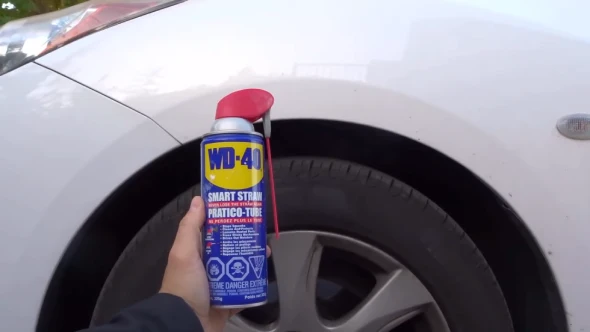
Keeping your car’s suspension system in check is essential to ensuring a smooth ride and preventing further damage. Taking the right precautions and following the proper maintenance steps can help prevent squeaking or creaking noises from coming from your car’s suspension system.
1. Lubricating Suspension Components:
To keep your suspension components lubricated, start by lifting your car up with a jack so that there is enough space to work on the underside. Then, examine all rubber bushings around the entire suspension area.
Once you’ve identified the bushing areas, use a silicon or rubber lubricant to generously spray into these areas until they’re fully saturated with lubricant. Spray the top anchor point of each strut to ensure everything is properly lubricated and running smoothly.
2. Tightening Loose Components:
To fix this issue, inspect all relevant components such as wheel bearings, upper control arms, and sway bars, while parked on level ground (on ramps is best). If you find any loose bolts or nuts, use a socket wrench to tighten them up until they’re snug but don’t over-tighten them.
3. Replacing Worn Components:
Start by identifying which parts may have become worn out so that you can purchase replacements for them. This may involve removing certain parts from underneath your vehicle so that you can get a better look at them.
Once you know what needs replacing, use new OEM parts where possible (or good quality aftermarket parts) and then reassemble everything according to manufacturer instructions before taking your car for another test drive to make sure all squeaks have been eliminated successfully.
4. Fill Power Steering Fluid:
It’s important to always keep an eye on this level lest it drops too low in between service intervals. Begin by checking the power steering fluid reservoir under the hood.
If it looks low, top it up according to manufacturer instructions using only approved power steering fluids designed for your specific make/model of car. Then take it for another test drive.
How Do You Prevent Lift Kit Squeaks?
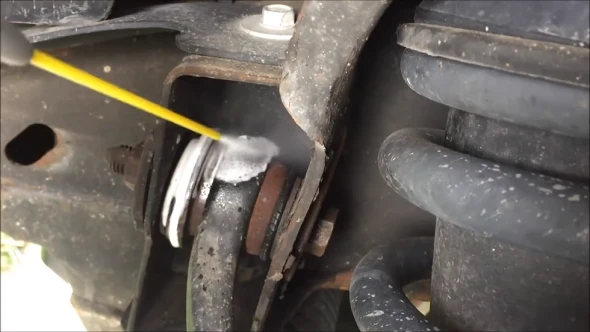
Unwanted squeaks can often accompany lift kits, but you don’t have to live with them. With a few simple steps, you can prevent the chances of your kit making any unwanted noises.
1. Proper Installation Techniques
When installing a suspension lift kit, it is important to follow the instructions carefully. Take your time with each step, double checking your work to ensure that everything is installed correctly and securely.
Ensure all bolts are torqued, and any wiring connections are properly secured. Also, use anti-seize lubricant on all metal-on-metal surfaces to help reduce friction. Once everything is installed, run through a few test cycles to ensure nothing is loose or rubbing in an undesirable way.
2. Periodic Inspections and Maintenance
Regularly inspecting your lift kit for signs of wear or damage is also important for preventing unwanted squeaks in the future. Pay attention to any areas where metal components come into contact. Also, pay attention to where wiring may be rubbing against something else, as these are common sources of squeaking.
If any parts appear worn or damaged, replace them immediately before they cause further issues down the line. Ensure to periodically check nuts and bolts for proper torque and inspect any moving components for signs of wear or lack of lubrication.
3. Use High Quality Parts and Lubrication Products
Using high quality parts when installing a body lift kit is essential for reducing potential noise sources in the future as well as providing reliable performance over time. This includes using high quality nuts and bolts that have been correctly torqued per their specifications.
Select durable components such as coil springs or leaf springs that can stand up to regular use without issue. Using proper lubricants on any moving components can help reduce friction between metal surfaces which can cause unwanted squeaking over time if left unchecked.
Is It Normal for New Suspension to Squeak?
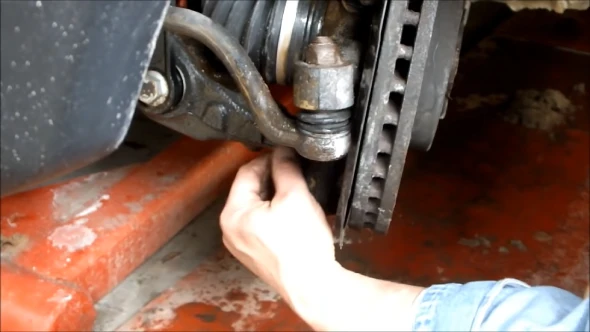
The squeaking of new suspension components is certainly not normal and could be indicative of an underlying problem that requires swift attention. Worn or loose bolts, excess friction between components, or misaligned parts could all cause squeaking.
Consequently, a professional inspection is recommended in order to diagnose and then address the issue before further harm comes to your vehicle. Don’t hesitate to take your car in for a checkup if something isn’t sounding quite right.
When Do You Hire a Professional Mechanic?
If you have been troubleshooting the squeaking of your vehicle’s suspension with no luck, it might be time to seek assistance from a professional mechanic. A qualified technician can diagnose thoroughly beyond what the average person is familiar with.
Mechanics are adept at determining underlying causes that could lead to the problem, ensuring you get the most comprehensive fix possible and leaving your car purring smoothly over any terrain. Don’t wait too long because the squeak in your suspension could indicate some effect on other parts of your vehicle down the track.
Why Does Your Suspension Squeak When You Go Over Bumps?
When you go over bumps in your vehicle, your suspension system is put under pressure which can cause tension on certain components including the ball joint. If the ball joint is worn, this can cause squeaking when pressure is applied as it has lost its ability to hold the two components together securely.
Is It Safe to Drive with Squeaky Suspension?
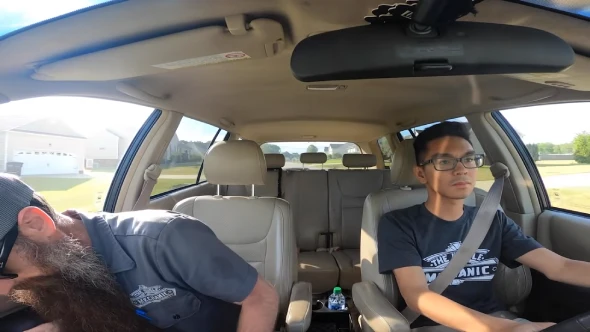
Squeaky Suspension can be dangerous more than just uncomfortable: shaking, jolting, and rattling in your car. When left unchecked, a squeaky suspension can cause increased wear and tear on essential components, reducing the stability and handling of your vehicle.
This not only impacts its performance but also diminishes its ability to offer adequate protection during an accident, putting your safety at risk.
What Can I Use to Stop My Truck from Squeaking?
Silicon spray offers a simple yet effective way to maintain vehicles and keep them running smoothly. Its cost-efficient lubricating formula eliminates friction and squeaking in moving parts. It prevents bigger issues that might require expensive repairs or replacements down the line.
Can You Spray WD-40 On Rubber Bushings?
WD-40 is a commonly used lubricant for household use, but when it comes to rubber bushings and gaskets, it should not be used. It is a petroleum-based lubricant and, when left in contact with rubber for long periods, can cause swelling, deterioration, and possibly even disintegration.
It’s also best to use a silicone-based lubricant instead of lithium grease which is specifically designed for use on rubber parts. These will not cause the same problems and also provide better protection against dirt and dust build-up.
Keep Your Vehicle’s Suspension Smooth and Squeaky free
Having a squeaky suspension can do more than just give you an unpleasant driving experience. It can actually affect the handling quality and stability of your vehicle. Depending on the cause, this issue may result from insufficient lubrication, poor-quality components, or simply the wear and tear that comes with time.
Avoid these effects by installing the lift kit using only quality components and ensuring that all parts are lubricated and tightened regularly. Taking these simple preventative measures now will ensure that your suspension continually operates smoothly over many years in the future.
